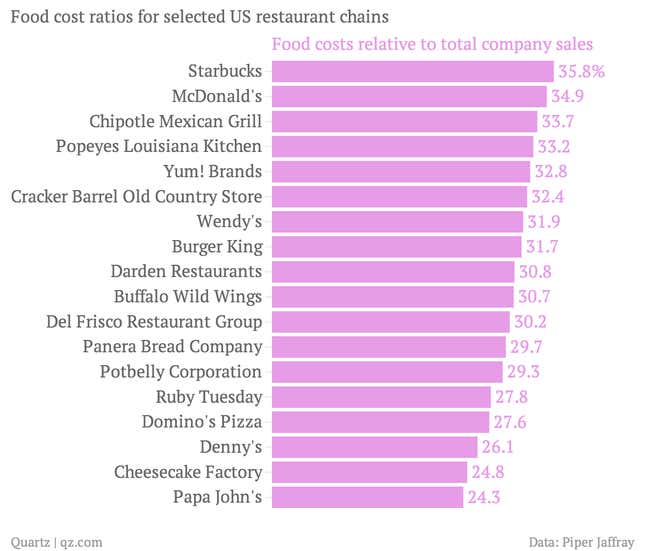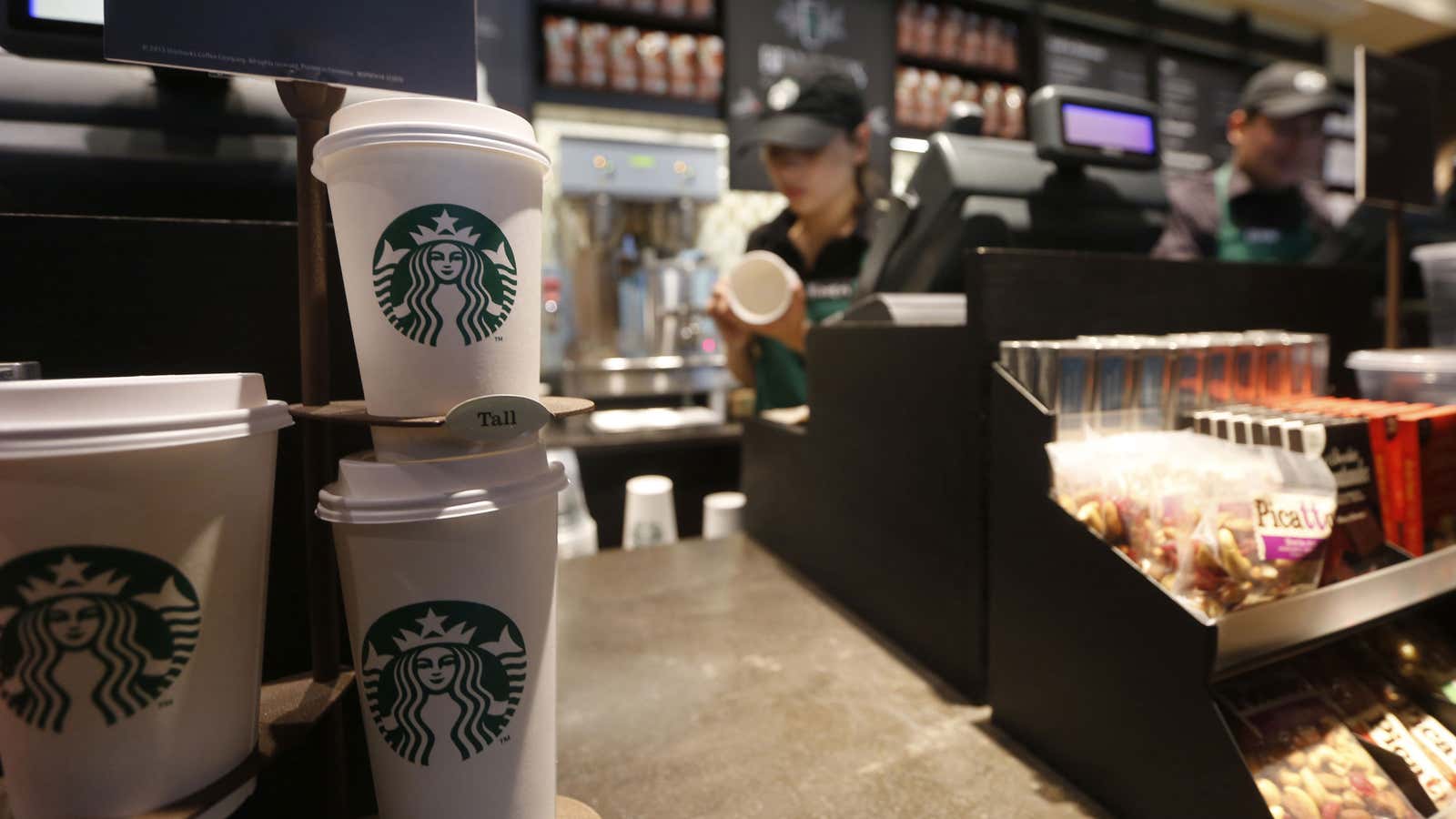Food price inflation is becoming a problem for the fast food industry, and Starbucks is no exception. Milk prices are up 27% this year, and coffee prices are not far behind, rising by about 25%.
The below chart, built using data compiled by Piper Jaffray analyst Nicole Regan, shows that Starbucks’ food costs relative to its total sales are higher than just about any other restaurant chain out there. The company recently hiked prices for its coffee by a small amount, upsetting some devoted coffee drinkers.

How this price increase has impacted its sales (if at all) remains to be seen—the company reports earnings on Thursday, and the price hike took effect when the quarter was basically finished. (Though management may shed light on it and the broader issue of higher input costs during its accompanying conference call.)
For her part, Piper Jaffray’s Regan does not think higher coffee costs will be a major issue for the chain going forward. First, it has already locked in coffee supplies for this fiscal year, and for roughly 40% of next year’s supplies “at roughly flat pricing,” she writes.
But arguably more importantly, Regan says Starbucks is still well positioned to manage any price increases due to its “industry-leading brand equity” and “menu pricing power.”
In other words, demand for Starbucks coffee is inelastic enough that the company can pass on higher costs to its customers. CEO and founder Howard Schultz has emphasized the value of the chain’s brand and driving customer loyalty. According to market researcher Millward Brown, Starbucks’ brand value jumped by 44% last year and is now worth about $26 billion.
The stronger a company’s brand is, the less commoditized its products appear to consumers, the greater its ability is to charge higher prices for them. Investor Warren Buffett once described pricing power as the most important factor in evaluating a business. “If you’ve got the power to raise prices without losing business to a competitor, you’ve got a very good business,” he said in 2011. Starbucks is in the process of testing that thesis.
